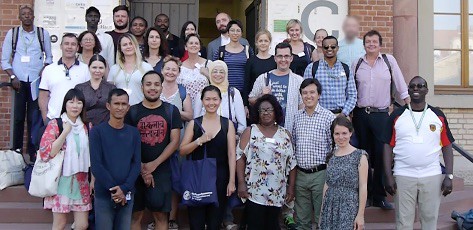The Max Planck Foundation welcomed participants from the Berlin Seminar on Truth, Justice & Remembrance sponsored by the Robert Bosch Foundation.
On 25 June 2019, twenty-three transitional justice practitioners from around the world took part in a workshop entitled “Overcoming Challenges to Transitional Justice in Divided Societies” at the Foundation offices in Heidelberg, Germany. The workshop served as one part of the Berlin Seminar on “Truth, Justice, and Remembrance” hosted by the Robert Bosch Foundation. The Berlin Seminar, a two-week programme, served to give insight into approaches, methods and current challenges surrounding the process of coming to terms with Germany’s past, while discussing the relevance of lessons learned for the participants’ countries of origin.
Focusing on the challenges of identity in transitional contexts, and the related problem of managing goals and expectations for a country’s transitional justice agenda, the workshop facilitated open discussion among the participants on the extent and the way ethnic and religious divisions challenge, shape, and ultimately influence the success of transitional justice interventions. One Research Fellow, and two Senior Research Fellows from the Foundation served on the panel and shared their insights stemming from their in-country experience in Bosnia and Herzegovina, South Sudan and Sri Lanka, in order to provoke thought and spur discussion.
One of the Foundation’s Managing Directors moderated the discussion between the participants which followed. Topics that emerged during the discussion included the importance of civil society networks in managing expectations among victims’ communities in transitional settings, the role of peace agreements in defining expectations of transitional justice processes and the difficulties of achieving goals in transitional contexts when regime change has not taken place.

